In this article, I will be discussing the importance of your attitude and mindset when playing Star Wars Legion. That’s right, today we are going to talk about our feelings…
Before I begin, it is important to understand that this is not the “end all, be all” on how to conduct oneself and think about Legion. While I am specifically focusing on playing games in the Legion community, the following information can also be utilized in casual settings. I believe reflecting on why you play Legion and how your actions affect other players, not only makes you a better community member, but a more successful competitive player. I have played tabletop games since I was young, starting with Pokémon cards when I was in grade school. Everything I am sharing here is what I have learned over the last two decades playing tabletop games.
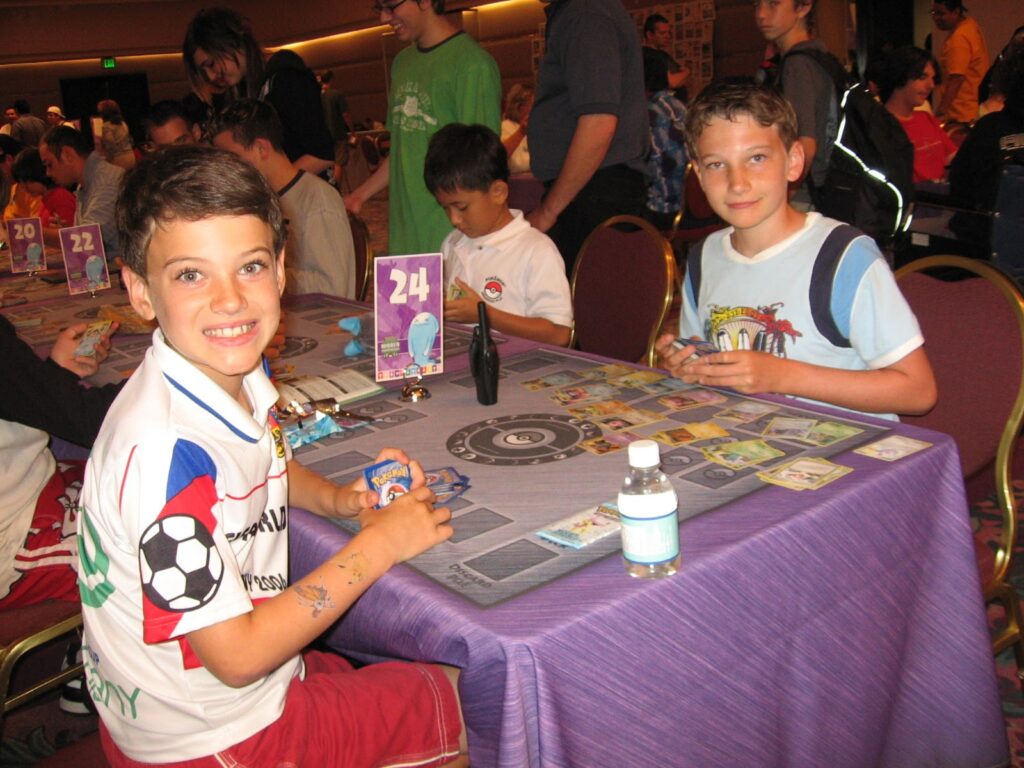
Why I love Legion & the Legion community
Legion has become the main tabletop game I play for a variety of reasons. First, I am a huge Star Wars nerd and love bounty hunters such as Boba Fett and Bossk. When I saw Boba Fett at my local game store, it immediately piqued my interest. Second, I love the casual competitive atmosphere in war gaming. I really enjoy battling wits with my opponent but also appreciate the inherently casual nature that comes with wargaming. Finally, the Legion community is extremely welcoming and full of great people. I love getting to grab food and drinks with everyone at the end of a long day of gaming.
Outline of the article.
In this article I am going to share some of my thoughts on why we play Legion, sportsmanship, and how your mindset is important for competitive play. Overall, you can think of this as a guide as we prepare to start playing games in person again.
Why We Play:
Reflecting on why you enjoy Legion can help you lean into that aspect of the game and get more enjoyment out of it. This can also help in competitive situations. Embracing your love of the game makes you a better sportsman and member of the community. There is a wide array of reasons people get into Legion ranging from painting/hobby, love for Star Wars, or just overall enjoyment of the gameplay itself.
Hobby
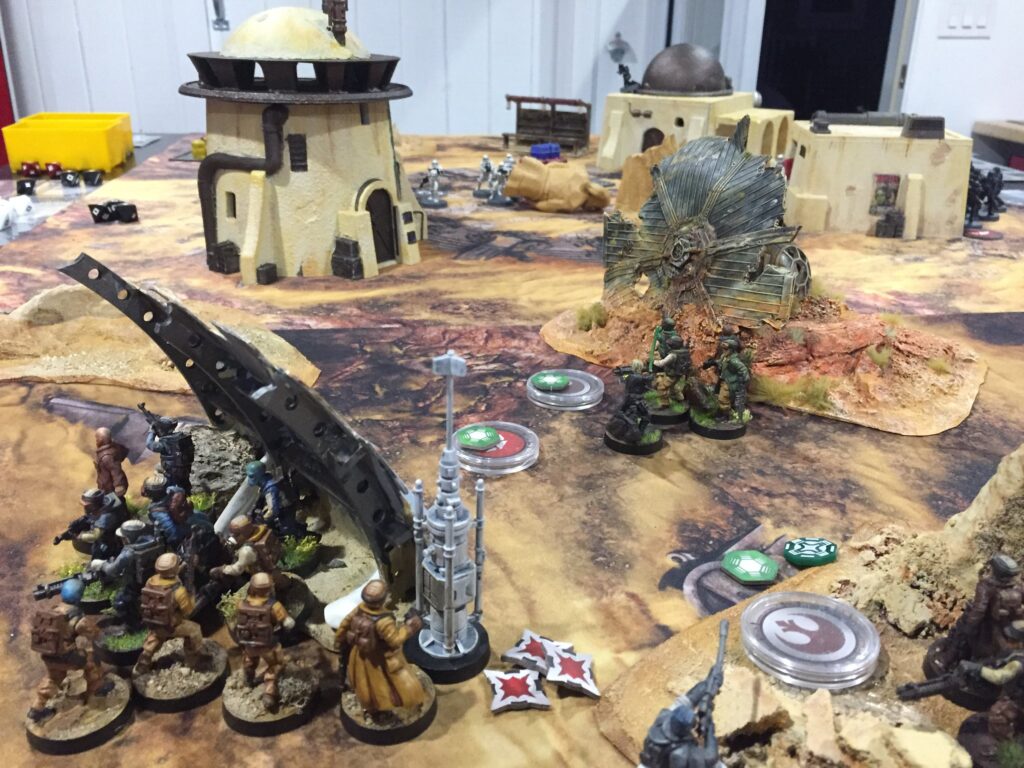
Legion is a tabletop miniatures wargame meaning that painting and modeling is an integral part of the game. While you technically can play with unpainted models and cardboard boxes for terrain, many are drawn to the game because of the hobby aspect. For some, painting awesome Star Wars themed armies is fun enough in itself and the gameplay is just a bonus. Legion has amazing models, themes, and sculpts. As the game has aged all these aspects have only gotten better as sculpts are becoming more dynamic and modular. I know some people who assemble and paint the models without even playing the game itself. The creative aspect of Legion alone is a draw for many of us in the community.
Gameplay
Many people enjoy the game because of the gameplay. I personally believe that there are two main ways to approach gameplay: competitive and casual. These are not mutually exclusive. You can enjoy both and at certain times lean into one, more than the other. I also want to point out there is no “right” way to enjoy Legion. In the end, we are all playing a game with plastic toy soldiers, so do what makes you excited to put your models on the table.
Casual
I consider casual play to be situations where flavor of the gameplay is more important to you than function or competitiveness. Casual play can range from playing with a friend or family at home to playing in competitive tournaments but bringing a list based on a theme, rather than a specific strategy. I love playing Legion casually, using units and characters I would not typically use in a competitive setting. While a casual emphasis might not lead to the most competitive scenarios it is still extremely fun. Casual game modes such as operations and community made campaigns such as Storm Tide add flavor through alternative army compositions, rules, and objectives. For some players, even at competitive events, flavor is more important than winning. While building a list based on Hoth full of Snow Troopers, Vader, and an AT-ST might not be the most competitively viable, if it makes you excited to play, go for it!
Competitive
One of the best parts of Legion is its ability to balance flavor with fun, balanced, and engaging gameplay. I personally love working on a list and tuning it to be competitive in a tournament setting. I love feeling like I am learning and trying to figure out new strategies. That being said, Legion is also a wargame full of randomness. When playing war games, it is important to understand there is an inherent lack of precision. We do our best to minimize this with nifty tools such as lasers and silhouettes, but even with these tools, Legion will never be exact. Also, the entire game is built on dice, so everything is determined by chance. While Legion does have a huge competitive community it will never be as competitive as Magic: The Gathering due to the margin of error and its non-exact nature, and even less so than a game like chess that has no randomness or ambiguity. For me Legion strikes the perfect balance between competitive and casual. Don’t get me wrong, strategy is hugely important in Legion. This is made obvious by the consistency of players such as the forever world champ Luke Cook who regularly wins major tournaments. All this to say acknowledging the inherently casual nature of Legion can help you not only be a better sportsman but also aid you competitively.
Community
One of the biggest selling points of Legion is how amazing its community is. Legion has an extremely friendly and engaged community. Everyone in my local area has been a pleasure to play against and chat about nerd culture with. Legion has a large online community as well. There are tons of active Legion YouTube channels, podcasts, Twitch channels, online tournaments/leagues, and numerous blogs such as this one. In many ways this entire article is my love letter to the Legion community and how it has enriched my overall experience in Legion.
Sportsmanship 101: keep it fun!
Keeping the Legion community welcoming and exponentially growing requires good sportsmanship by us players. In general, the cardinal rule of good sportsmanship is to stay positive and have fun. This means always seeing the best in your opponent and assuming in every situation they have the best intensions. Some of us are extremely outgoing and chat the entire game, others tend to be more shy and quiet as they focus on the game. Everyone is different so try not to read into their attitude and instead reflect on how you can be a more positive player. I am still working on exemplifying these points and becoming a better member of the community myself. So I wanted share some of the things that have helped me grow as a friendly player and a better opponent.
Be a good loser
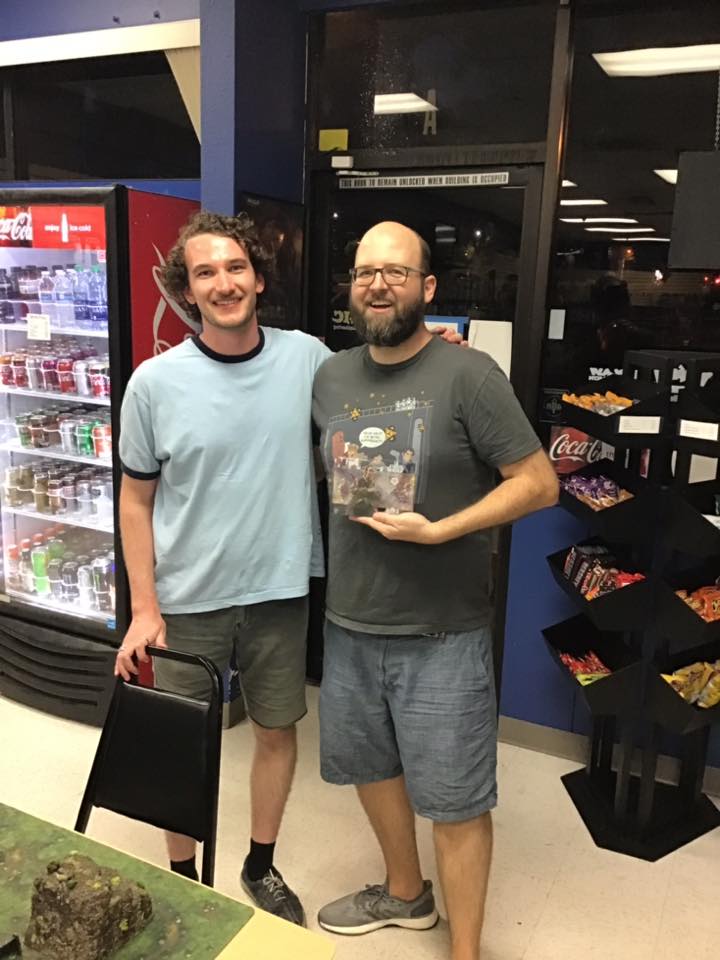
Losing a game with grace is the biggest sign of a good sportsman. While you may be disappointed, especially in a competitive setting, it is important to stay positive because your attitude can make or break your opponent’s experience in winning. You learn the most in losses and they are necessary to become better as a player. Getting frustrated will only make the play experience for your opponent negative and will prevent you from reflecting on the specific plays you made that resulted in the loss. No matter how good we think we are, we never “deserve” to win. Stay humble, learn from losses, and have fun rolling dice even if you are on the losing end. In the end, you are the only one who can control whether you are having fun, regardless of the game outcome and your opponent’s attitude.
Be a good winner
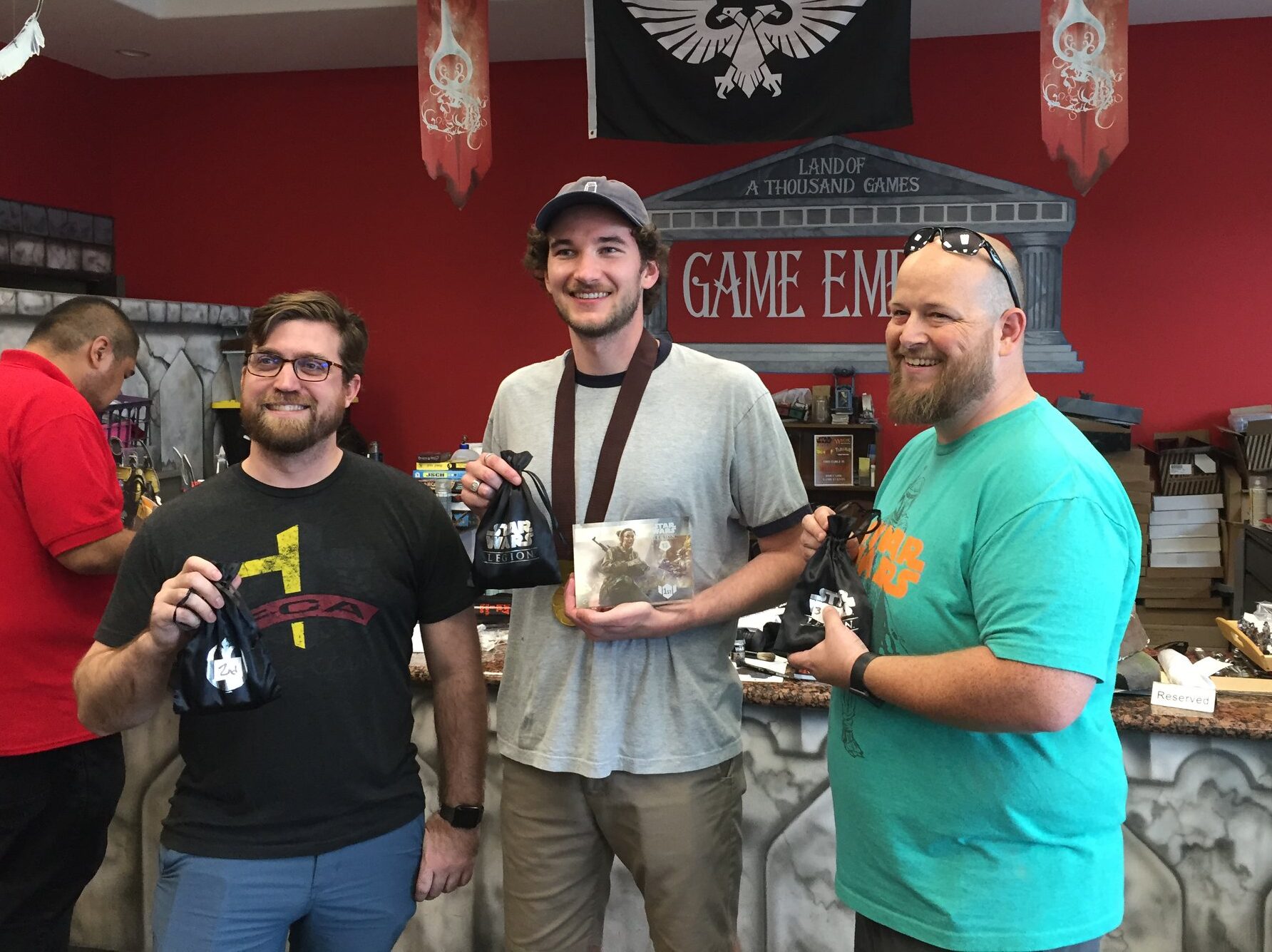
Being a good winner again comes back to being humble. Winning a game does not give you license to give advice to your opponent and coach them on what they should change. I only ever point out moves I thought were mistakes if my opponent asks me to. While your intensions may be good in wanting to help your opponent improve, you need to remember not everyone plays to be competitive and unsolicited advice can often come off as condescending. One thing I actively focus on is complementing my opponent after the game. If they were friendly and fun to chat with let them know they were a great opponent. If the game was super close and tactical share with them how fun they made all 6 turns, keeping you on the edge of your seat the entire game. Being a good winner typically boils down to playing the game in a way that, even while losing, your opponent has a good time. This means trying your best to not be hostile and not getting aggravated when small things don’t go your way. You can really drain the fun out of the game when you are winning but complain anytime something small doesn’t go your way. So, to put it simply, be gracious and aware of how your reactions can affect your opponent, especially if you are winning.
Always be able to say GG
No matter what happens, it is crucial to be able to genuinely say “good game”. Having a good game for me does not come from just how the game played out but in the experience with my opponent. How fun the game was does not hinge on the dice results or level of competition but solely on the joy of the game. Even if you feel your opponent was ill-mannered, be the bigger person and still say “good game”. Being friendly, regardless of the outcome of the game, only ever leads to a better experience for both players.
Don’t complain about dice
Last but certainly not least don’t complain about dice. This is something easier said than done. I personally have to work hard on not complaining about bad rolls during a game. I also know many top players who actively try to not complain about dice. Many will even ask after the game if I felt they complained about dice too much as they want to break the habit. The reason I think this is important is a twofold. First and foremost, complaining about bad rolls can lead to a negative play experience for your opponent causing them to feel that they didn’t “deserve” the win and creating a toxic play experience. Second, focusing on situations where dice were not in your favor will stunt your growth as a player by giving you a blind spot against your own mistakes. You have no control over the outcomes of rolls so don’t fixate on things you can’t change. Legion is a dice game, so variance and random outcomes are an inherent part of playing. Complaining about a core part of the game is not productive. If you crave a true battle of wits, deterministic games such as chess may be a better fit for you. I personally believe that variance in Legion makes the game exciting and forces you to play with your gut. Because you cannot guarantee any outcome, upsets can always happen, keeping the game exciting until the very end. Again, reflecting on why you enjoy Legion can help you deal with frustrations around bad variance. Remembering why you chose to play Legion, a game where literally every phase has randomness, can help to reduce your frustration. Battle decks have a random card burnt and are ordered at random, every attack and save is determined by a dice process, and the table and terrain you play on is assigned to you at random. While learning to not complain about dice and variance is difficult, I think it is fully worthwhile and helps you grow as a competitor and positive force in the community.
Mindset matters for competitive
In competitive play reflecting on why you play and how outcomes affect your feelings can help you minimize tilt and burnout. It can also lead to more clarity and honest self-critique on what gameplay aspects you can improve on. Sadly, anger in legion does not give you focus, it does quite the opposite in my experience, so here I will do my best to try and prove Palpatine wrong.
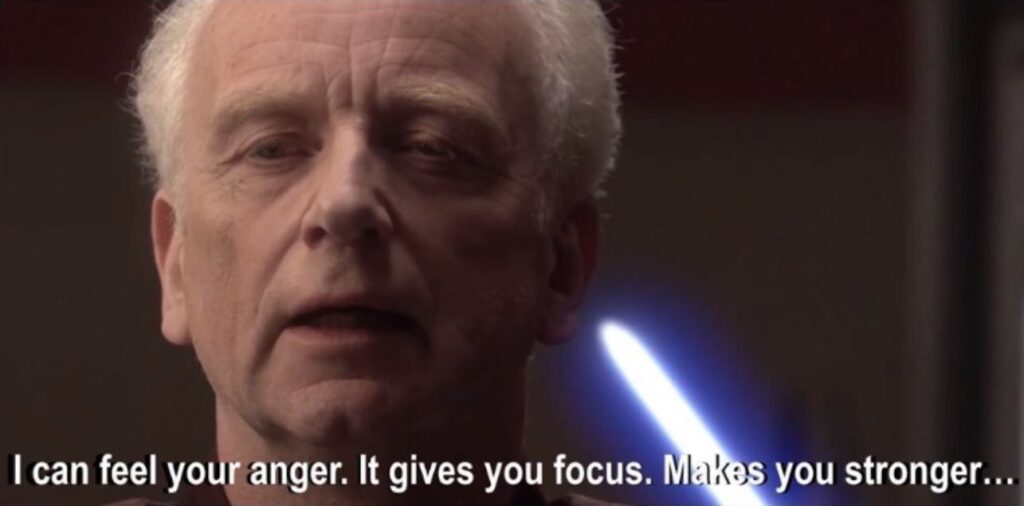
Dealing with tilt
Tilt can be broadly defined as allowing losses or mistakes to frustrate you and lead to more poor choices or decisions which result in more losses. Tilt commonly results in large losing streaks or negative play experiences. There is a variety of ways of dealing with tilt. The first for me is trying to avoid becoming “tilted” in the first place. Bad rolls and plays that go wrong are just part of the game. No matter how much you prepare you are sometimes going to make a bad call in a game and get punished for it. I often dive too deep with a mando or a force user and get punished. You must be able to move on and refocus on your next play. Also, sometimes dice rolls will not go your way. I have had multiple games where a saber user will block every shot and the stack of suppression will grow taller than the model itself, or I have had a 1 health Luke Deflect a 7-hit shot from full health Death Troopers (DT’s) take no damage and one-shot the DT’s. In these cases, don’t focus on how these events are not going your way but on what your next move is. If you let bad rolls bother you it will only result in more poor decision making on your part. Dice are a part of the game. So now let’s say you keep losing games and find that whatever you are doing is not working and you feel tilted on a losing streak. First, take an honest reflection on your gameplay and remove your emotion. This can help you identify potential mistakes that are resulting in these losses. Second, try switching it up, sometimes it takes a new approach to help get you out of your slump. So if you find you are on a losing streak and you can’t break out, try a new list, build a new archetype, and/or give a new faction a shot. Playing something you are not used to can help you figure out new ideas and view the game from a new angle which can help you get out of a losing rut.
Avoiding burnout
In competitive gaming it is all too easy to get burnt out and start losing the fun in the game. I see this happen when people lose sight of why they play the game. No matter how much you practice or how good you are, Legion is a dice game with lots of random elements so you can never guarantee a result. For myself, I tend to feel burnout if I dwell too much on losses or convince myself a certain game should have had a different finish. The way I deal with this is just by being honest with myself and reminding myself of why I play Legion. Part of the reason I play Legion because of its inherently casual nature and reliance on randomness. If winning and a true battle of wits is the most important thing to me then Legion is clearly not the best game to fulfill this. I play Legion because I love Star Wars and I enjoy the fact that strategy matters but also dice can bail you out. Even if another player is much better than you there is still a glimmer of hope that you could win! That being said, doesn’t change the fact that I feel exhausted after long tournaments. After the Knowledge and Defense tournament consisting of playing Legion for 8 hours 3 days in a row on TTS I felt wiped out. I was happy with my result of second place but after prepping for half a year playing with the same list I felt burnt out. To remedy this, I played a faction I had never played before for the next few months and focused more on casual builds and trying new things out. Switching it up helped me again find the fun in the casual part of the game and made me a much better player by exposing me to other play styles. Balancing the fun part of the game with the competitive is important for me to still enjoy the game.
Conclusions: keep it fun!
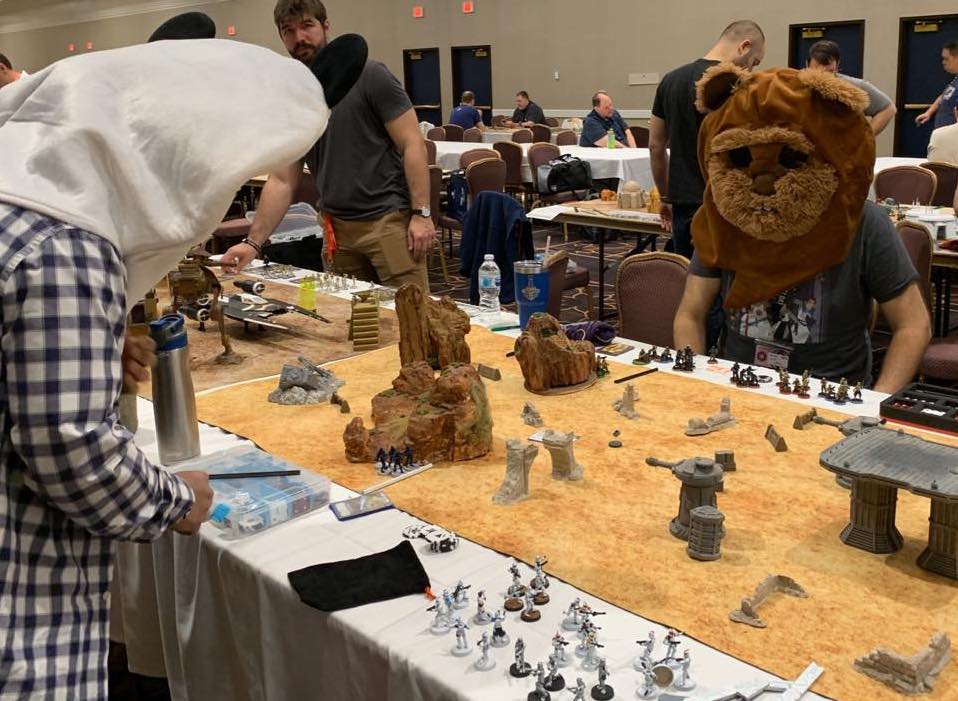
I will leave you with this: Fun is the main reason we play Legion, whether that fun comes from the hobby, competition, or community. Never lose sight of that and remember your attitude in game affects the experience of your opponent. With that in mind, be intentional about becoming a better sportsman and player. We are all human and can continually work on being better. That being said, Legion already has a phenomenal community and I personally can’t wait to see everyone in person again soon!
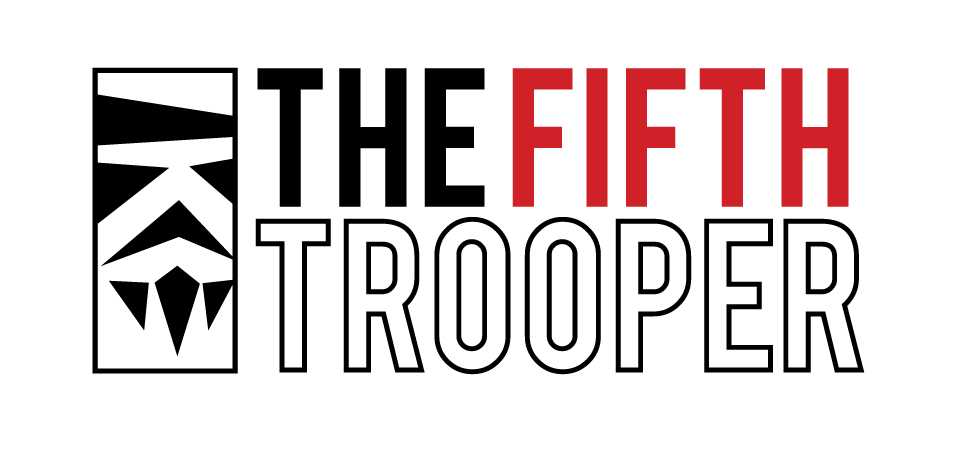
These articles tend to not get as many comments, but they are some of my favorite and I think some of the most important overall. Great article.
This is a fantastic article that says a lot about why you are a favorite streamer and opponent, Tekno. Great write-up. – BansheePants